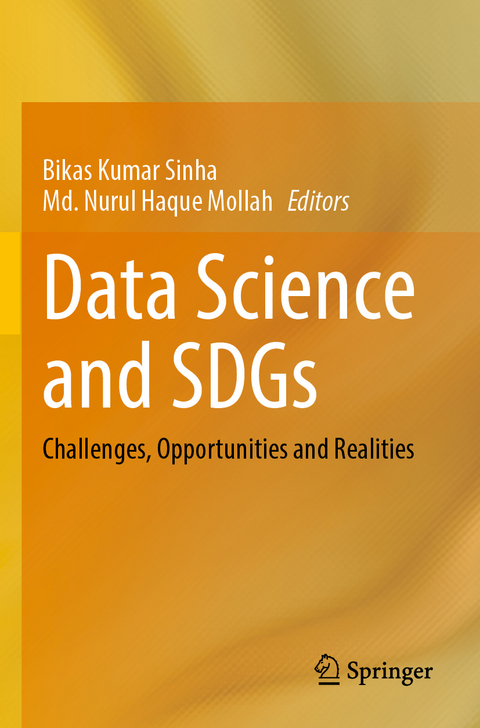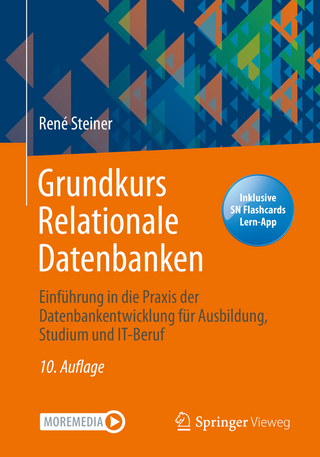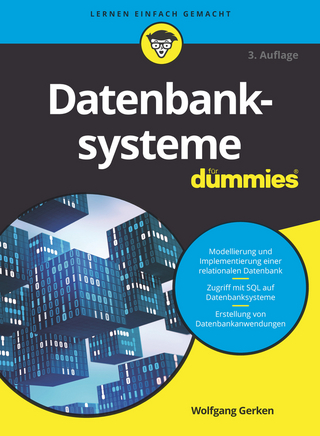
Data Science and SDGs
Springer Verlag, Singapore
978-981-16-1921-2 (ISBN)
The book presents contributions on statistical models and methods applied, for both data science and SDGs, in one place. Measuring and controlling data of SDGs, data driven measurement of progress needs to be distributed to stakeholders. In this situation, the techniques used in data science, specially, in the big data analytics, play an important role rather than the traditional data gathering and manipulation techniques. This book fills this space through its twenty contributions. The contributions have been selected from those presented during the 7th International Conference on Data Science and Sustainable Development Goals organized by the Department of Statistics, University of Rajshahi, Bangladesh; and cover topics mainly on SDGs, bioinformatics, public health, medical informatics, environmental statistics, data science and machine learning.
The contents of the volume would be useful to policymakers, researchers, government entities, civil society, and nonprofit organizations for monitoring and accelerating the progress of SDGs.
Professor Bikas K Sinha has been publishing Springer monographs and edited volumes since 1989. Besides being an academic with Indian Statistical Institute [1979-2011], he has served Government of India as a Member of National Statistical Commission for the 3-year period 2006-2009. His research publications span both statistical theory and applications. He was appointed an ‘Expert on Mission’ for the United Nations-funded Workshop on Survey Methodology in 1991. Professor Sinha has travelled extensively worldwide with teaching/research/consultancy assignments. He has held various academic assignments in international institutes. Professor Nurul Haque Mollah is attached to the Department of Statistics, University of Rajshahi, Bangladesh. He completed his PhD degree research (2002-2005) in Statistical Science from the Institute of Statistical Mathematics (ISM), Tokyo, Japan. He also completed his post-doctoral research (2006-2008) in bioinformatics from ISM, Tokyo, Japan. His area of research specialization covers multivariate statistics, robust statistical inference, statistical signal processing, data mining, bioinformatics and computational biology. He has published 170 research articles, book chapters in refereed journals, books and proceedings of international conferences so far. He has supervised more than 50 research students at Master and PhD levels. He successfully led, as the Principal Investigator (PI), several research projects funded by UGC, NST, BANBEIS and World Bank. He also organized several national/international workshops, seminars and conferences as convener/co-convener. He is the convener of BioRGSD (Bioinformatics Research Group of Statistics Department, RU) & BioRGRU (Bioinformatics Research Group, RU). He is also the Founder President of BBCBA (Bangladesh Bioinformatics and Computational Biology Association).
Chapter 1: SDGs in Bangladesh: Implementation Challenges & Way Forward.- Chapter 2: Some Models and Their Extensions for Longitudinal Analyses.- Chapter 3: Association of IL-6 Gene rs1800796 Polymorphism with Cancer Risk: A Meta-Analysis.- Chapter 4: Two Level Logistic Regression Analysis of Factors Influencing Dual form of Malnutrition in Mother-child Pairs: A Household Study in Bangladesh.- Chapter 5: Divide and Recombine Approach for Analysis of Failure Data Using Parametric Regression Model.- Chapter 6: Performance of different data mining methods for predicting rainfall of Rajshahi district, Bangladesh.- Chapter 7: Generalized Vector Auto-regression Controlling Intervention and Volatility for Climatic Variables.- Chapter 8: Experimental Designs for fMRI Studies in Small Samples.- Chapter 9: Bioinformatic Analysis of Differentially Expressed Genes (DEGs) Detected from RNA-Sequencing Profiles of Mouse Striatum.- Chapter 10: Level of Serum High-sensitivity C-reactive protein Predicts Atherosclerosis and Coronary Artery Disease in Hyperglycemic Patients.- Chapter 11: Identification of Outliers in Gene Expression Data.- Chapter 12: Selecting Covariance Structure to Analyze Longitudinal Data: A Study to Model the Body Mass Index of Primary School Going Children in Bangladesh.- Chapter 13: Statistical Analysis of Various Optimal Latin Hypercube Designs.- Chapter 14: Erlang Loss Formulas: An Elementary Derivation.- Chapter 15: Machine Learning, Regression and Numerical Optimization.
| Erscheinungsdatum | 18.08.2022 |
|---|---|
| Zusatzinfo | 32 Illustrations, color; 13 Illustrations, black and white; XXII, 197 p. 45 illus., 32 illus. in color. |
| Verlagsort | Singapore |
| Sprache | englisch |
| Maße | 155 x 235 mm |
| Themenwelt | Mathematik / Informatik ► Informatik ► Datenbanken |
| Mathematik / Informatik ► Mathematik ► Wahrscheinlichkeit / Kombinatorik | |
| Naturwissenschaften ► Biologie | |
| Wirtschaft ► Allgemeines / Lexika | |
| Schlagworte | Big Data • cluster analysis • Data Mining • machine learning • statistical modeling • Sustainable Development Goals |
| ISBN-10 | 981-16-1921-2 / 9811619212 |
| ISBN-13 | 978-981-16-1921-2 / 9789811619212 |
| Zustand | Neuware |
| Informationen gemäß Produktsicherheitsverordnung (GPSR) | |
| Haben Sie eine Frage zum Produkt? |
aus dem Bereich


